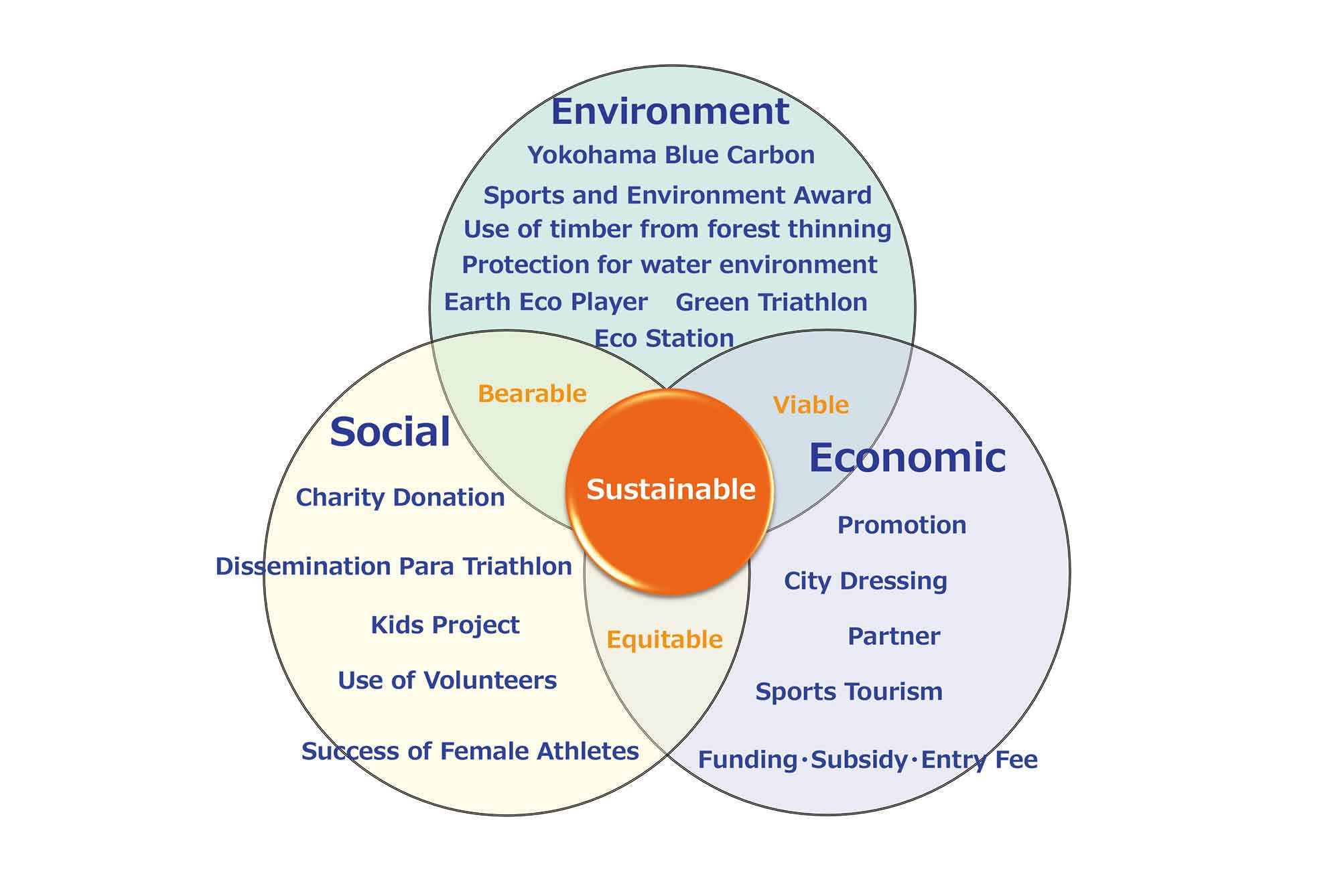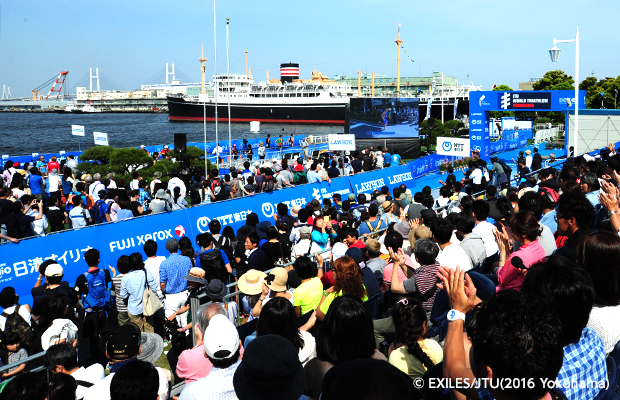ISO20121
About the Acquisition of ISO20121 Certification
In 2012, the ITU World Triathlon/Paratriathlon Series Yokohama acquired the certification of ISO20121 (international standard for the sustainability of event management) for the first time in the event genre in Japan.
Standard Components (in case of the Yokohama event)

1 Environment
Reduction of environmental burden in organizing the event; Environmental enlightenment towards the event participants, etc.
2 Social
Public interest for the event’s local community; social contribution towards the host country and the rest of the world, etc.
3 Economic
Economic effects for the event organizers; economic effects for the event suppliers, etc.
Sustainable Event Management
1 Continue to organize an event that will improve the environment and not to make it a scrap-and-build type.
2 Establish the event to be a common feature of Yokohama through management that will make it a sustainable event.
3 Disseminating Yokohama's progressiveness domestically and globally by acquiring the ISO standard.
4 To work towards gaining Yokohama Triathlon fans and social contribution such as CSR from corporations, etc. by differentiating the event from the others and emphasizing its superiority when selling the event
By improving the level of the three pillars of “Environment”, “Social” and “Economic”, the ITU World Triathlon Series Yokohama and ITU World Paratriathlon Series Yokohama will continue to manage the event through the application of ISO20121 certification while following laws and regulations. The understanding and cooperation of everyone involved in the event’s acquisition of ISO20121 certification is very much appreciated.
What's ISO20121?
ISO20121 is the international standard for event management sustainability. This standard is for the implementation of a sustainable “event” and “community involvement in the event” by setting target figures of the three components and simulating the mutual effects of not only the “environment” but also “social nature” which the event owes to the community (maintenance and development of local resources) , and “economic efficiency” such as the healthy management of the event itself and the ripple effects on the local community.




















